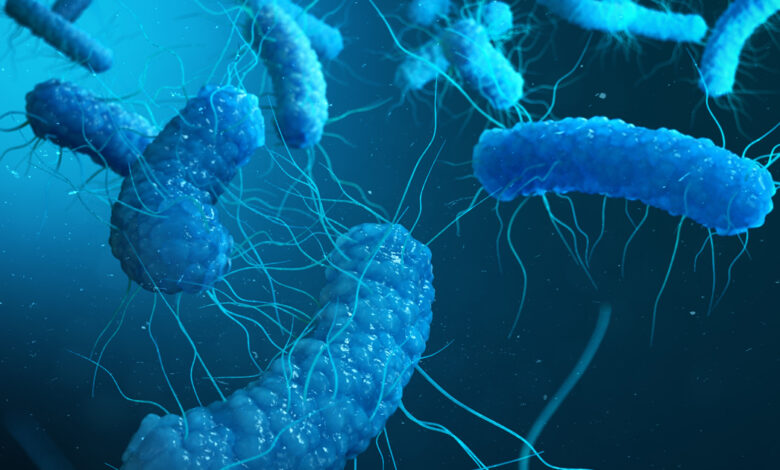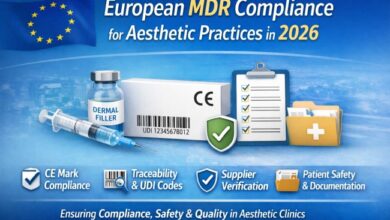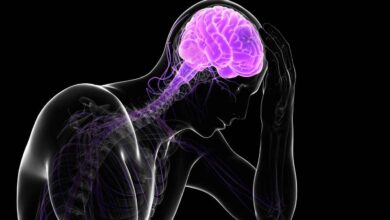How the Gut Microbiome Affects Cancer Treatment and Recovery

The gut microbiome, which refers to the trillions of bacteria, viruses, fungi, and other microorganisms that live in the digestive tract, plays a crucial role in maintaining overall health. In recent years, scientific research has revealed that the gut microbiome is not only important for digestion and immune function but also significantly impacts the effectiveness of cancer treatments and the recovery process. As we continue to uncover the complexities of cancer biology, understanding the relationship between the gut microbiome and cancer treatment is becoming increasingly vital. In this article, we will explore how the gut microbiome influences cancer treatment, the recovery process, and ways to support a healthy microbiome for better outcomes.
The Gut Microbiome and Its Role in Health
The human gut microbiome is home to a diverse range of microorganisms that contribute to various bodily functions, including digestion, nutrient absorption, immune system regulation, and even mood regulation. These microbes are essential for maintaining a balanced immune system and protecting against harmful pathogens. The gut microbiome also interacts with the central nervous system through the “gut-brain axis,” which has implications for emotional and mental health.
Research has shown that a healthy and diverse microbiome is crucial for overall well-being. When this microbial community becomes imbalanced — a condition known as dysbiosis — it can contribute to a wide range of health issues, including autoimmune disorders, inflammatory conditions, and even cancer. For cancer patients, the state of the gut microbiome can significantly impact treatment outcomes and recovery.
The Gut Microbiome’s Impact on Cancer Treatment
Cancer treatment, whether through chemotherapy, radiation, immunotherapy, or surgery, is designed to target and eliminate cancer cells. However, these treatments can also affect healthy cells in the body, leading to side effects such as fatigue, nausea, infections, and gastrointestinal issues. Surprisingly, the gut microbiome plays a major role in how the body responds to cancer treatments, and research has begun to show that the composition of gut microbes can influence treatment efficacy.
1. Chemotherapy and the Gut Microbiome
Chemotherapy is one of the most common cancer treatments, but it can cause a range of side effects, particularly in the digestive system. Chemotherapy drugs work by targeting and killing rapidly dividing cells, which include cancer cells but also healthy cells in the gut lining. This can lead to gut microbiome imbalances and result in symptoms such as diarrhea, nausea, and infection.
Recent studies have shown that the gut microbiome can influence how well chemotherapy works. Some bacteria in the gut can enhance the effectiveness of chemotherapy, while others may reduce its impact. For example, certain beneficial gut microbes can help the body metabolize and activate chemotherapy drugs, making them more effective in attacking cancer cells. On the other hand, an imbalance in gut microbes may make the body more vulnerable to the toxic effects of chemotherapy.
2. Immunotherapy and the Gut Microbiome
Immunotherapy is a cutting-edge treatment that harnesses the body’s immune system to fight cancer. Unlike chemotherapy, which targets cancer cells directly, immunotherapy helps the immune system recognize and attack cancer cells. The success of immunotherapy is highly dependent on the immune system’s ability to function properly. The gut microbiome plays a crucial role in regulating immune responses, and an imbalance in gut bacteria may impair the immune system’s ability to respond to immunotherapy.
Several studies have demonstrated that a diverse and healthy gut microbiome can enhance the effectiveness of immunotherapy treatments. For example, some bacterial strains have been shown to stimulate the production of specific immune cells, such as T-cells, which are essential for targeting and eliminating cancer cells. Conversely, a disrupted microbiome may limit the immune system’s response, reducing the effectiveness of immunotherapy.
3. Antibiotics and Gut Microbiome Disruption
Cancer patients often require antibiotics to prevent or treat infections, particularly during or after chemotherapy. However, prolonged or excessive use of antibiotics can disrupt the gut microbiome by killing off both harmful and beneficial bacteria. This disruption can lead to a condition called antibiotic-associated diarrhea, as well as an increased risk of infections and a reduced ability to respond to cancer treatments.
Maintaining a balanced gut microbiome during cancer treatment is crucial for reducing the negative impact of antibiotics and supporting the body’s ability to fight infections and recover from treatment.
The Gut Microbiome and Cancer Recovery
Beyond treatment, the gut microbiome also plays a significant role in cancer recovery. A healthy microbiome supports the immune system, reduces inflammation, and promotes overall well-being, which are all essential for healing after cancer treatment.
1. Immune System Support
The immune system is key to recovery, helping the body fight off infections and repair damaged tissues. A balanced gut microbiome supports immune system health by stimulating the production of immune cells, such as T-cells and macrophages, which play a central role in the body’s defense mechanisms. Moreover, a healthy microbiome helps regulate inflammation, ensuring that the immune system remains active without becoming overactive, which could lead to chronic inflammation.
2. Reducing Inflammation and Fatigue
Chronic inflammation is a common issue for cancer patients, both during and after treatment. It can contribute to fatigue, pain, and other complications, making recovery more difficult. A disrupted gut microbiome can exacerbate inflammation, while a balanced microbiome can help reduce it. By supporting the production of anti-inflammatory molecules and promoting a healthy immune response, the gut microbiome can help alleviate some of the physical and emotional challenges associated with recovery.
3. Gut Health and Nutrient Absorption
After cancer treatment, many patients struggle with poor appetite, nausea, and digestive problems. A healthy gut microbiome is essential for proper digestion and nutrient absorption, which are necessary for healing and rebuilding the body. By maintaining a balanced microbiome, cancer patients can improve their digestion, reduce gastrointestinal discomfort, and support their recovery process.
How to Support a Healthy Gut Microbiome During Cancer Treatment
Given the significant role that the gut microbiome plays in cancer treatment and recovery, it is important to take steps to support gut health during the cancer journey. Here are some strategies that may help:
1. Probiotics and Prebiotics
Probiotics are beneficial bacteria that can help restore balance to the gut microbiome. Prebiotics, on the other hand, are non-digestible fibers that feed and support the growth of healthy bacteria. Incorporating probiotic-rich foods (like yogurt, kefir, and sauerkraut) and prebiotic foods (such as garlic, onions, and bananas) into the diet may help maintain a healthy microbiome.
However, it is important to consult with a healthcare provider before taking probiotics or supplements, especially during cancer treatment, as certain strains may not be suitable for all patients.
2. A Balanced and Nutritious Diet
A diet rich in fruits, vegetables, whole grains, and lean proteins can promote a healthy gut microbiome. These foods provide essential nutrients, antioxidants, and fiber that support gut health and immune function. Avoiding excessive amounts of processed foods, sugar, and artificial additives can also help reduce gut inflammation and promote microbial diversity.
3. Avoiding Unnecessary Antibiotics
While antibiotics are sometimes necessary, overuse or misuse can disrupt the gut microbiome. Always follow your healthcare provider’s instructions when taking antibiotics, and work with them to explore alternative treatments whenever possible.
4. Stress Management
Chronic stress can negatively impact the gut microbiome by altering the balance of gut bacteria and increasing gut permeability. Practicing stress-reducing techniques, such as meditation, yoga, and deep breathing exercises, can help support a healthy microbiome and improve overall health.
Conclusion
The gut microbiome is a powerful force in cancer treatment and recovery. From influencing the effectiveness of chemotherapy and immunotherapy to supporting immune function and reducing inflammation, the gut microbiome plays a pivotal role in shaping cancer outcomes. By taking steps to maintain a healthy microbiome — through a balanced diet, stress management, and cautious use of antibiotics — cancer patients can improve their chances of successful treatment and a smoother recovery.
At The Cancer Conversation, we believe in the importance of a holistic approach to cancer care. Supporting gut health is just one of many ways to empower cancer patients to take control of their healing journey. As research in this area continues to evolve, we look forward to learning more about how the gut microbiome can be harnessed to improve cancer treatment and recovery.



